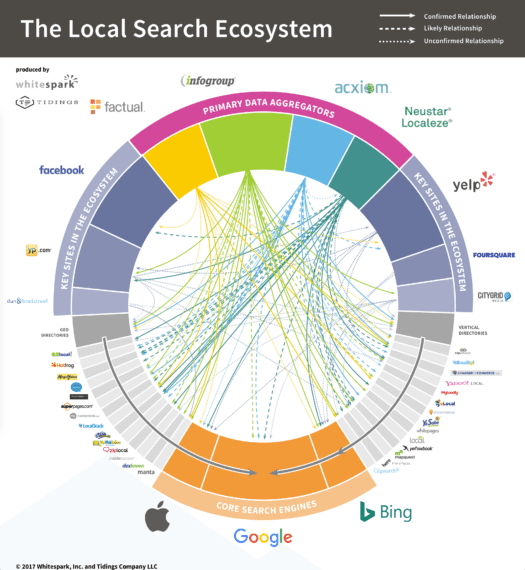
As a regional/local player, you have a material advantage over your larger, national competitors that can be pressed and aided by simple technologies. Regional insurance companies, particularly Farm Bureau Insurance Companies with in-state offices and agents, have a firsthand knowledge to cater to their clientele — especially those in rural areas — on a much more personalized basis. But whereas interpersonal relationships and referrals represented the lion share of sales and marketing efforts in the past, a new technique must be mastered for success in the future.
Today, online reviews likely have more to do with an agent’s success than any other factor. The contemporary customer shops far more extensively online, reacting to web and social advertising in real time. In doing so, the comments section on brands’ social media pages and review sites play a key role in their perceptions. Consumers and business owners alike read online reviews — the good, the bad, and the ugly — to determine which insurers are trustworthy, credible, and clearly have a history of exceptional customer service.
Consumers are willing to pay 22% more for a product or service if the company has a good online reputation. On the contrary, a whopping 94% of consumers admit to avoiding companies with negative online reviews.
Here are our top tips on how to best manage your insurance agency’s reputation online, specifically on the world’s biggest search engine and social network — Google My Business and Facebook.
Google My Business
Customers can leave reviews for various businesses directly on Google. Google My Business(GMB) is a 100% free tool that acts as a digital storefront. Any company can set up a Google My Business profile, which includes name, address, and phone number (NAP) data, hours of operation, directions, questions and answers, and the all-important reviews.
Agents need to be aware of the power of their GMB listing and, in tandem, should encourage their customers to leave a review after they have been served with a pleasant experience. We suggest developing a letter that can be sent with specific instructions. The more reviews there are — and the more positive they are — the company will be rewarded with higher organic SEO, which leads to more calls, quotes, and business.
We recommend monitoring your Google My Business page regularly to ensure the information is accurate, and any suggested edits are error-free.
Businesses of all shapes and sizes are found via search engines like Google. When a search query (e.g., “business insurance near me”) matches a specific business, the user searching for the query will be shown that business’s information, and should they want to contact them directly, they can do so.
GMB Customer Review Guidelines
- Respond directly to reviews ASAP.
- Express gratitude for compliments and thoughtfully respond to anyone who had a poor experience.
- Let your customers know you care about them through thick and thin, no matter what they have to say.
Facebook is a hub for brands to conduct business, promote their products, and interact with fans and customers. At the end of the day, social media at large is primarily used to display a brand’s (or insurance agent’s) persona and connectedness within the community — positioning them as a reliable resource.
Most corporate brands seemingly have this figured out. However, the local advantage is apparent when agents and agencies leverage Facebook pages have to act as extensions of companies’ websites, which includes the ability for customers to post reviews for all to see. If you’re an independent agent or work for a Farm Bureau insurance company, make sure all your posts adhere to the social media policy and avoid controversial topics.
Agents should not be afraid to suggest posts be shared with others or to request an online review. Happy customers and friends often want to help, but do not know how or what to do.
In order to secure Facebook reviews, you must have a dedicated Facebook Business Page for your insurance agency. Agents may also create their own pages to promote their specialized services, news updates, and other valuable content.
Simple Ways to Elicit Customer Reviews
Testimonials should always come from a genuine place. Asking your insurance customers for reviews should feel natural, never forced. A few effective ways to elicit honest reviews from customers include:
- Casually bring it up in conversation.
- Call customers on the phone.
- Ask for one in response to praise.
- Link to your Google reviews page from your website.
- Request one after a successful claim is handled.
- Send customers personalized emails. (Emails requesting reviews had an average open rate of nearly 70% in 2020.)
- Include your Google review link in your email signature.
Recognize the positive
If someone posts a positive review about your insurance agency:
- Greet and thank the reviewer by name for taking the time to share their kind words.
- Acknowledge the joy and satisfaction your service provided.
- Remind the reviewer that customers are your top focus.
- Thank them again and wish them well.
Control the negative
If you receive a negative review about your insurance agency:
- Begin with an apology and thank the reviewer for sharing their thoughts.
- Acknowledge the results of the negative experience so the reviewer understands you are fully aware of what happened.
- If appropriate, offer an explanation (not an excuse) for what happened.
- Explain what you will do to address the problem and prevent it from reoccurring.
- Thank the reviewer and apologize again.
- Follow up with them in a few weeks to ensure the issue has been resolved.
Watch the virtual presentation: Managing Your Brand’s Online Reputation
If you would like help setting up your Google My Business profile or social networks, or simply want to chat about how to canvass reviews and manage your brand’s online image, email bbennett@stirstuff.com or give us a call at 414-278-0040.




